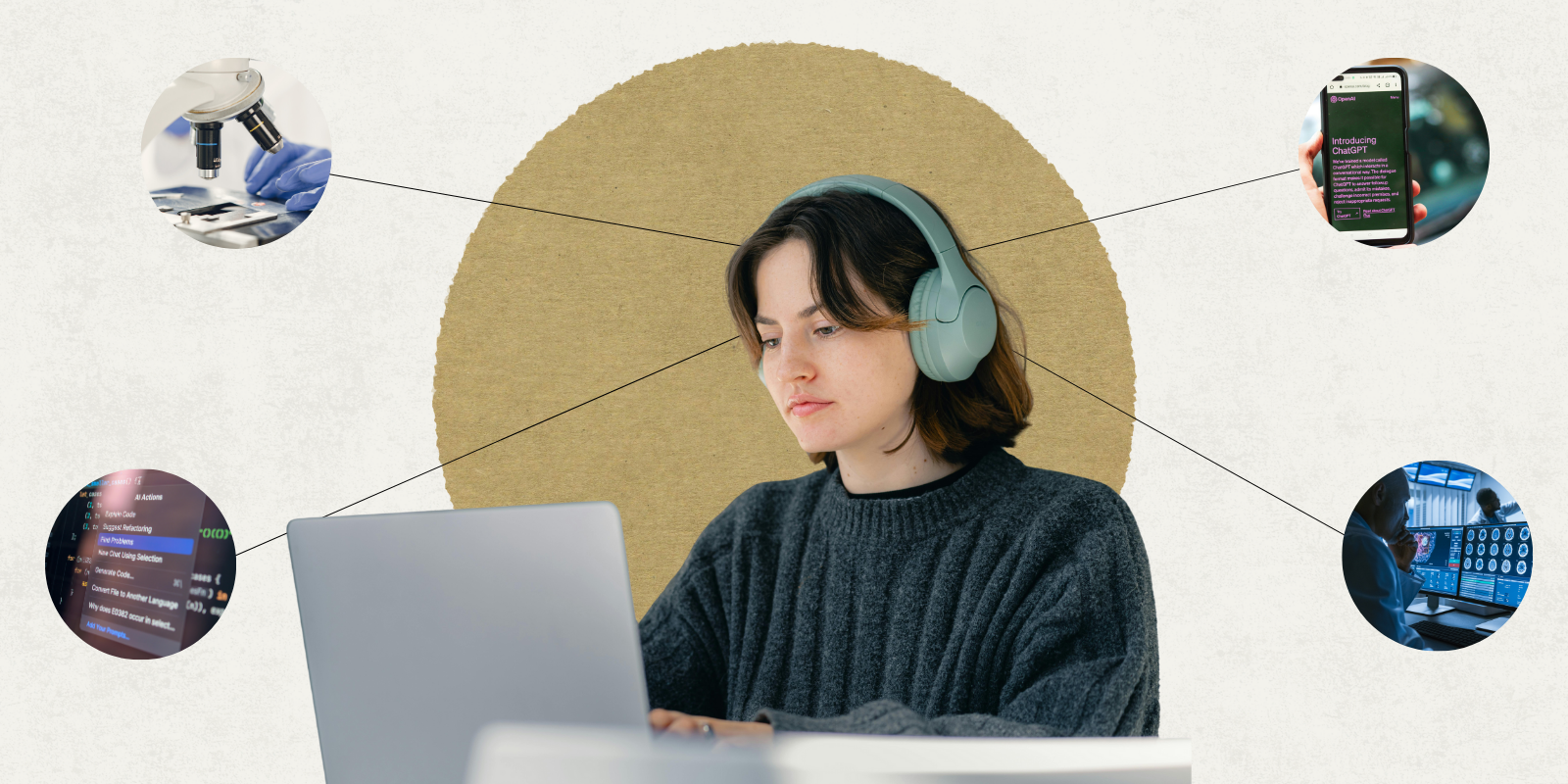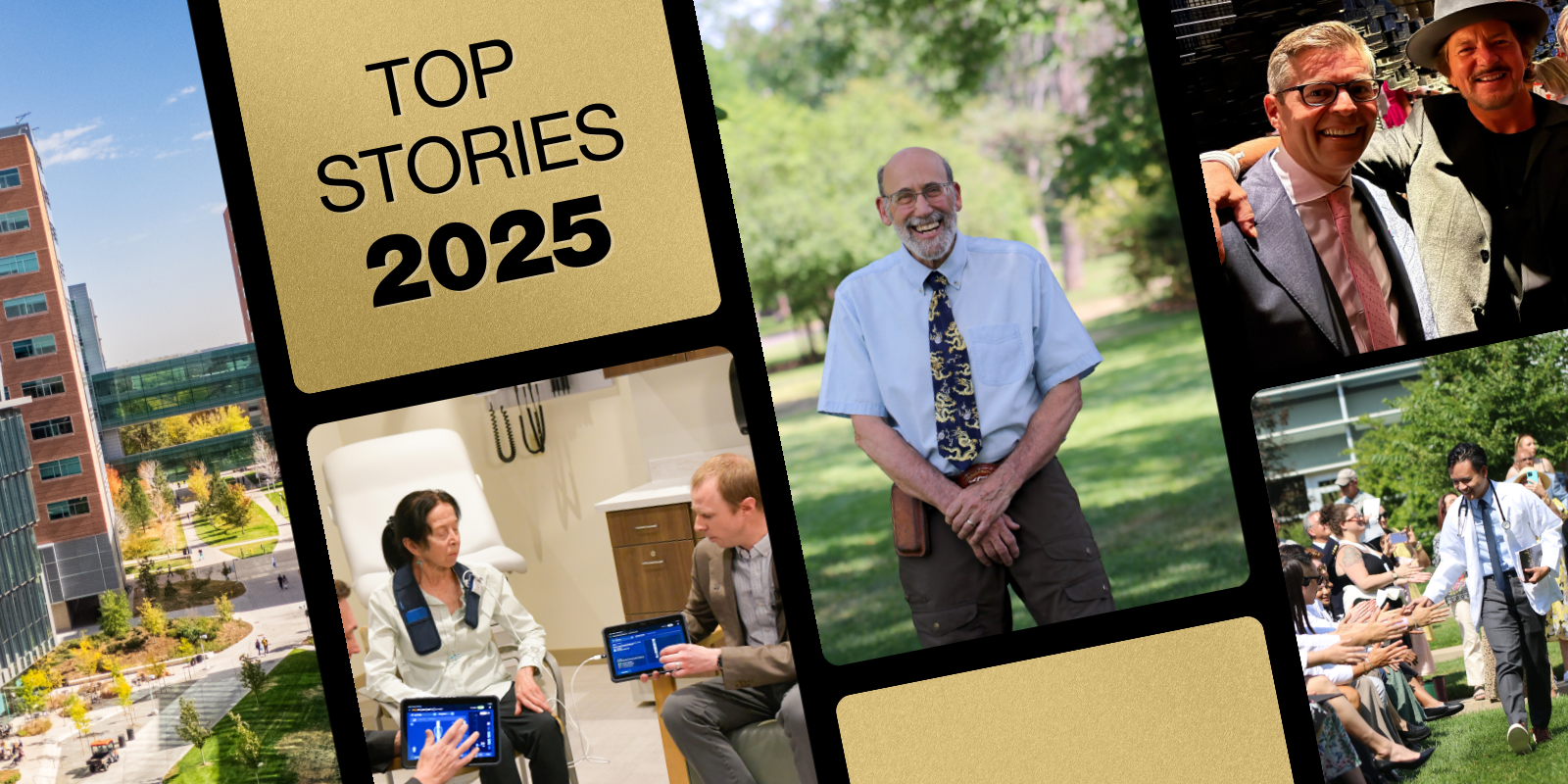Brisa Avila, who officially begins her medical student journey later this month, envisions a career in medicine where she can fill gaps in care, especially for underserved patients. Avila, along with 183 classmates, will officially receive their white coats on Friday, July 28, during the University of Colorado School of Medicine annual Matriculation Ceremony.
Born and raised in Commerce City, just north of the CU Anschutz Medical Campus, the first-generation college graduate has been motivated by her community, family, and friends to pursue medicine.
“My family has always been here for me,” Avila, one of six siblings, says. “They’ve always been so supportive, and they’ve helped me continue on to this point, even when it seemed difficult.”
![Image[38]](https://news.cuanschutz.edu/hs-fs/hubfs/School%20of%20Medicine/Image%5B38%5D.jpeg?width=458&height=344&name=Image%5B38%5D.jpeg)
Incoming medical student Brisa Avila, right, poses for a photo with friends. Photo courtesy of Brisa Avila.
An education marked by the pandemic
Half-way through her freshman year of college the COVID-19 pandemic closed residence halls at University of Colorado Denver where Avila was studying psychology through the BA/BS-MD degree program, which aims to promote the diversity of medical professionals practicing medicine in Colorado. Ten outstanding high school seniors from Colorado are accepted into the program each year.
“It was challenging,” she recalls of the first months of the pandemic.
Avila moved off-campus and back in with her parents, a traditional Mexican household that she says is always lively. It could be a challenge focusing, avoiding distractions, and staying on top of Zoom lectures and a demanding course load all through some of the most stressful conditions.
Even as the pandemic’s severity waned and restrictions in many factions of life lifted, trying to become a competitive medical school applicant proved to be especially difficult.
“A lot of opportunities were suddenly out of reach because everybody in health care was still being very cautious,” Avila says. “Clinics didn’t want volunteers, and it was hard to find professionals to shadow.”
Thanks to a school mentor in the degree program, Avila was able to gain some health care experience through work at the Platte Valley Medical Center, where she’d previously volunteered, and at Children’s Hospital Colorado, located on the Anschutz Medical Campus, ahead of applying to medical school.
“If I wouldn't have had like the program, it would have been definitely very difficult to get those experiences in for medical school,” Avila says.
Seeing the work up close cemented her passion.
A desire to enhance health equity
Avila would like to become a primary care doctor, one that serves patients who historically face greater challenges in seeking health care.
The passing of her grandfather in 2016, when Avila was a high school student, opened her eyes to disparities that can exist in health care, especially between doctors and patients who don’t share the same cultural background or speak the same language.
“He didn’t know how to read or write and he only spoke Spanish,” Avila says of her grandfather. “I think that contributed to his health issues before his death. It was hard for him to communicate with his physicians, and then it was hard for his physicians to really understand his cultural beliefs and why he was doing certain things.”
“I know I can use my diversity and experiences to help people who might not have representation in the medical field,” Avila says.
When she started college and took on research projects, acknowledging disparities also became crucial. She quickly learned while researching sex chromosome aneuploidies abnormalities that a lot of previous work didn’t include a wide array of ethnicities and socioeconomic statuses.
“This particularly impacts patients of color,” she says. “There should be more research that features these communities.”
As for medical school, Avila says she’s most excited for drilling down into the topics she’s passionate about and working with patients.
“I’m sure the first couple of months will be nerve-wracking, but I think it’ll be okay,” Avila says, “I have the support of my family and friends. I’m really passionate about diversity and I hope that someday I’ll be able to advocate for my patients.”



